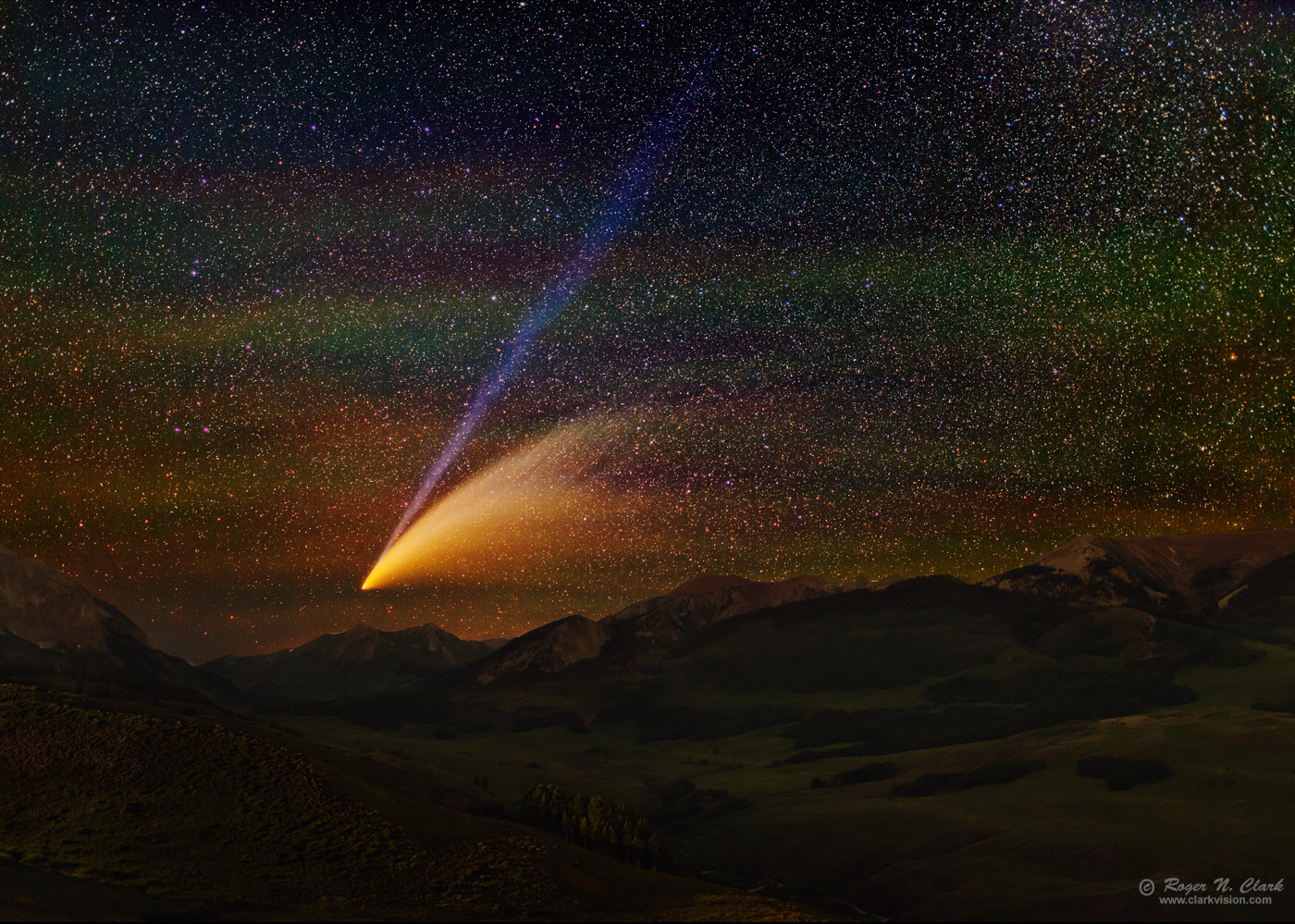| Home | Galleries | Articles | Reviews | Best Gear | New | About | Contact | Gallery Index | Previous |
Next |

| Home | Galleries | Articles | Reviews | Best Gear | New | About | Contact | Gallery Index | Previous |
Next |

Comet NEOWISE setting over the Colorado Rocky Mountains July 15, 2020. The red and green banded airglow is from oxygen emission above 90 kilometers in our atmosphere. Comet NEOWISE displayed a yellow dust tail about 16 degrees long which was an impressive sight both with unaided eye and in binoculars. The blue ion tail stretches about 25 degrees in this image, and the brighter portion could be seen in binoculars. The view is to the northwest up Gothic Valley near Crested Butte, Colorado.
Technical. This image was made from a 22-image stack on the sky, 3-image stack on the land, obtained with a Canon EOS 6D Mark II DSLR Camera and Sigma 35 mm f/1.4 DG HSM lens at f/1.4 and ISO 1600. Twenty two exposures, 14 seconds each on the sky, tracked, were combined with sigma-clipped average. Three exposure on the land, fixed tripod, 90 seconds each were averaged. Total exposure time: 5.1 minutes on the sky, 4.5 minutes on land.
Post processing: Stretched with rnc-color-stretch. Also see Astrophotography Image Processing Basic Work Flow. The trick for stretching with this software is to mask the land and color it the average color of the sky, then I used these settings: rootpower = 8, rootpower2 = 2, skylevelfactor = 0.001, scurve1. The default skylevelfactor is 0.06, but when gradients are present this must be decreased to prevent a black point error.
This is a natural color image.
The Exposure Factors, CEF, CEFA are measures of the relative amounts of light received from a subject. It can be used to fairly compare wildly different lens/telescope apertures and exposure times. For this image on the sky:
Modern DSLRs like the 6D Mark II include on sensor dark current suppression and low fixed pattern noise at ISOs around 1600 and higher, making no need for dark frame subtraction. Modern raw converters correct for light fall-off and also correct for hot/dead/stuck pixels. This makes processing low light images easy: simply align and average.
To learn how to obtain stunning images like this, please visit my Extensive Articles on Photography .
Keywords to this image = astrophoto-1 nightscapes airglow landscape-1 night low-light digital_astro colorado mountains airglow comet canon_6D2
Image ID: comet-neowise-rnclark-c07.15.2020.img_4757-78-av22.h-1400s.jpg
| Home | Galleries | Articles | Reviews | Best Gear | Science | New | About | Contact |
Last updated December 20, 2025